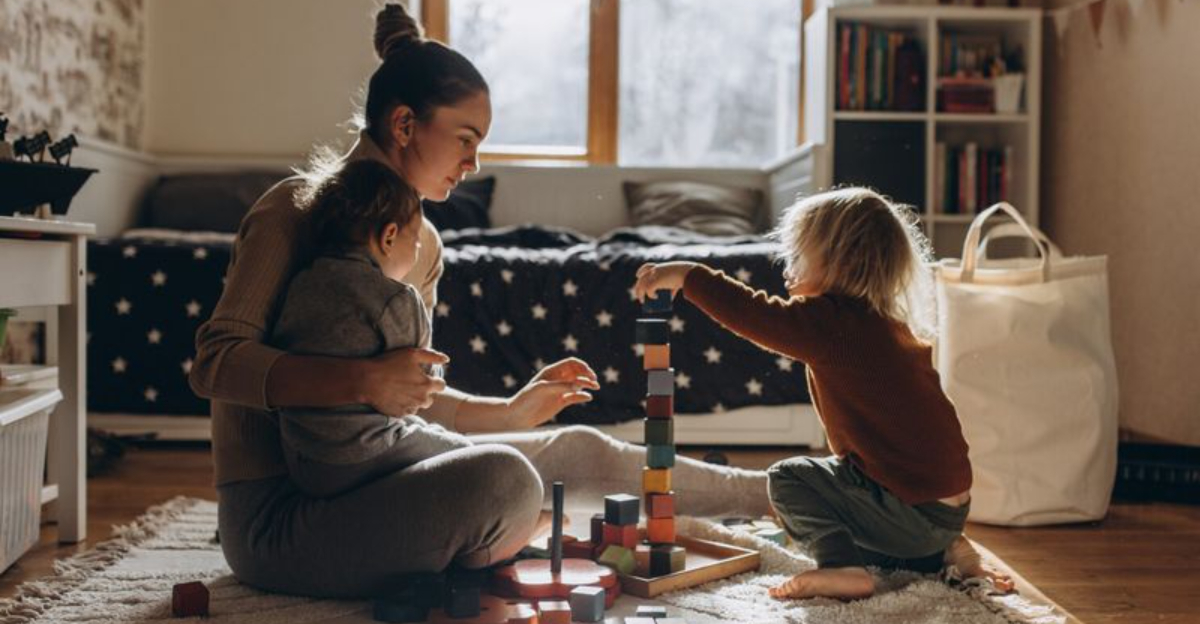Thriving Solo: 18 Game-Changing Tips For Single Parents
What rarely gets said out loud? That being a single parent can feel like balancing on a tightrope with no net—everyone watching, no one really seeing how hard it is when the spotlight fades.
Maybe you’re tired of advice that skips over the mess—the guilt, the loneliness, the nights you wonder if you’re doing any of this right. I’m not here to paint a pretty picture. If you want honesty, connection, and some hard-earned hacks that actually help, you’re in the right place.
These 18 tips aren’t about being perfect. They’re about making it through, one real, stubborn, sometimes hilarious day at a time.
1. Own the Reality (Without Shame)

Nobody wants to wake up one day and realize they’re raising a kid solo. Shame creeps in—maybe you feel like you failed, or that people are silently judging every choice.
I spent months letting that sink into my bones, until one morning, my daughter’s drawing on the fridge had us both with superhero capes. Suddenly, I realized she didn’t see my worries—she saw my persistence.
If you’re holding your breath, waiting for life to go back to normal, stop. This is your normal. You don’t have to apologize for your family not looking like a commercial. Kids notice love, not perfection. They know who shows up.
You’re not a cautionary tale or a project for anyone to fix. You’re the main character in your own story, even if the script ripped in half. Drop the shame. You get to define what a whole family looks like now.
2. Lock Down Your Routine (But Loosen the Reins)

Routines save lives—but being too rigid will suck the joy out of your mornings.
My son used to lose it if his favorite cereal ran out, and honestly, some days I wanted to cry right along with him. What helped? Building a routine with flex built in: breakfast, teeth, shoes by the door, but if things go sideways, we laugh and roll with it.
A routine isn’t a prison sentence. It’s a guardrail. Kids need to know what’s coming next, but they also need to see how you handle it when plans implode. Your calm when everything falls apart will teach them more than any perfect schedule ever could.
Sometimes, letting them eat pancakes for dinner is the kind of memory that sticks. Structure matters, but so does grace. Let yourself (and your kid) off the hook now and then.
3. Circle Up Your People (Even If You Hate Asking)

If self-sufficiency was an Olympic sport, single parents would sweep gold every year. But isolation is brutal.
I used to think asking for help meant I was weak. Then my car broke down, and I had to call my neighbor at midnight. She showed up in pajamas and didn’t make a big deal. That’s when it clicked—community isn’t pity, it’s survival.
Find your people. Maybe it’s a sibling, a friend from work, the older mom down the hall, or someone you met at the playground. You don’t need a massive support system. One or two constants can keep you sane.
And yes, you’ll have to ask. Swallow your pride. You can return the favor in small ways—watch a kid, drop off soup, or just listen. Don’t do this alone. It’s not a test of strength; it’s a team sport.
4. Protect Your Time Like It’s Oxygen
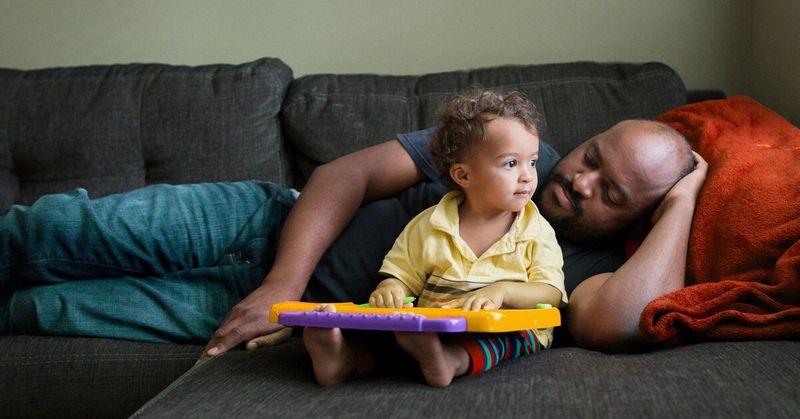
Let’s be real: if you wait for someone to hand you a break, you’ll wait forever. I learned to lock myself in the bathroom with a cup of tea and a podcast for twenty minutes. My kids survive. They even learn something—like boundaries.
You are not a machine. Burnout isn’t noble; it’s just exhaustion with extra steps. Scheduling your own time isn’t selfish. It’s air.
Find one hour a week to do something pointless that feels good. Read trashy novels, soak in a bath, garden, or doodle. Recharging is not optional. When you protect your time, you teach your kids that their needs matter—but so do yours.
5. Speak Honestly With Your Kids (Even About the Messy Stuff)
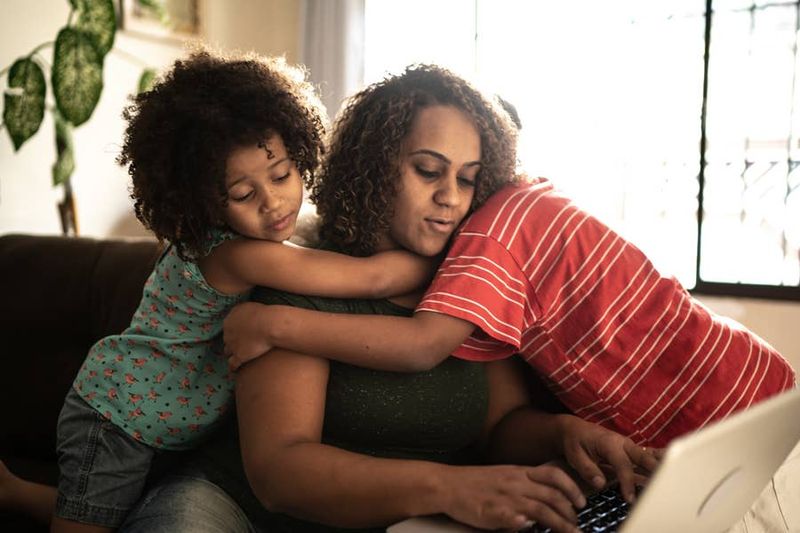
Kids aren’t stupid. They know when something’s off. I remember trying to hide my stress, but my son saw through it. One night, I told him: “I’m having a hard time, but I’m still here, and that won’t change.” He hugged me tighter than ever.
You don’t have to unload every detail, but don’t sugarcoat reality. Kids pick up on whispers and closed doors. Give them space to talk, cry, or just be quiet together.
Say the hard things out loud: “I know things are different now. It’s okay to be sad or mad. I’m here.” Honesty builds trust. That’s what gets you through the mess, not pretending it isn’t there.
6. Money Anxiety Is Real—Make Peace With Your Budget

Nothing eats at you from the inside like money stress. Every bill in the mail feels like a pop quiz I didn’t study for. For months, I pretended if I ignored my bank app, the numbers would magically work out. They didn’t.
The best thing I did? Faced it head-on. I made a budget: rent, groceries, kid stuff, a tiny sliver for fun. I tracked every dollar, even the ones that vanished into snacks. It wasn’t glamorous, but I stopped feeling out of control.
Let your kids see you handle money like it matters. Teach them where every penny goes. It won’t make you rich, but it will make you honest. That’s worth more than gold.
7. Be Okay With “Good Enough” (Not Instagram-Perfect)
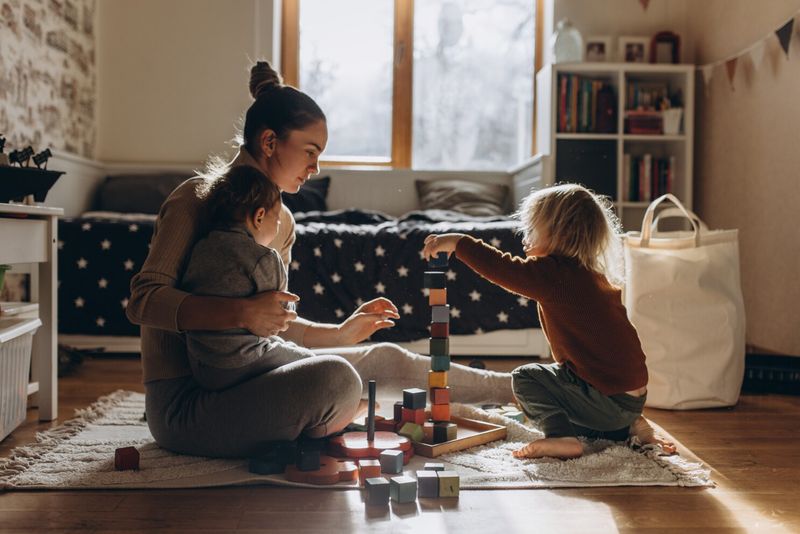
Here’s the secret nobody tells you—most “perfect” families on social media are faking it. There’s no prize for spotless houses or gourmet dinners every night. My proudest mom moment? Serving cereal for dinner, twice, and hearing my kid say it was “the best night ever.”
Good enough is not failure. It’s survival. Keep your standards sane and your expectations rooted in reality. Your kid won’t remember how folded the laundry was.
They’ll remember spontaneous dance parties, pillow forts, or the night you watched cartoons in pajamas. Ditch the highlight reel. Live in the outtakes.
8. Let Your Kids Try (And Fail)

Remember the urge to swoop in and fix everything? I had it. Still do. But when I let my daughter pack her own lunch, she forgot the sandwich but remembered the apple. She laughed about it at recess, and I realized she learned more from that than from a million reminders.
Let them fall. Let them get it wrong. Don’t rob them of the lesson you got from your own scraped knees and burnt toast.
If they mess up, let them know you’re proud of their effort. Celebrate the try, not just the win. Kids need space to fail safely. That’s how they figure out who they are.
9. Therapy Isn’t Weakness—It’s Maintenance

People talk about therapy like it’s some last resort. Truth is, it’s just as normal as going to the dentist, only more useful. I started therapy after a string of sleepless nights left me snapping at my kid for no reason. It helped me put my anger somewhere safe.
Sometimes you need more than deep breaths and self-care. You need an outsider who isn’t judging or advising—just listening. If your car needs a tune-up, so does your mind.
Don’t wait until you break. Therapy is a sign you care enough to keep going. Your kids will notice. Someday, they might thank you for it.
10. Find a Ritual That’s Just Yours

Rituals are the glue that hold weird days together. Every Saturday, my kids and I make pancakes. The kitchen is a mess, syrup gets everywhere, and the dog waits for dropped crumbs. It’s ours.
Find something that is just for you and your kid. Maybe it’s pizza on Fridays, a walk after dinner, or goofy bedtime stories. Rituals give you both something to look forward to when the week is hard.
It doesn’t have to be fancy. The point is the togetherness. Years from now, that ritual will be the thing they remember, not the chaos around it.
11. Keep Bedtime Sacred (For Your Sanity)
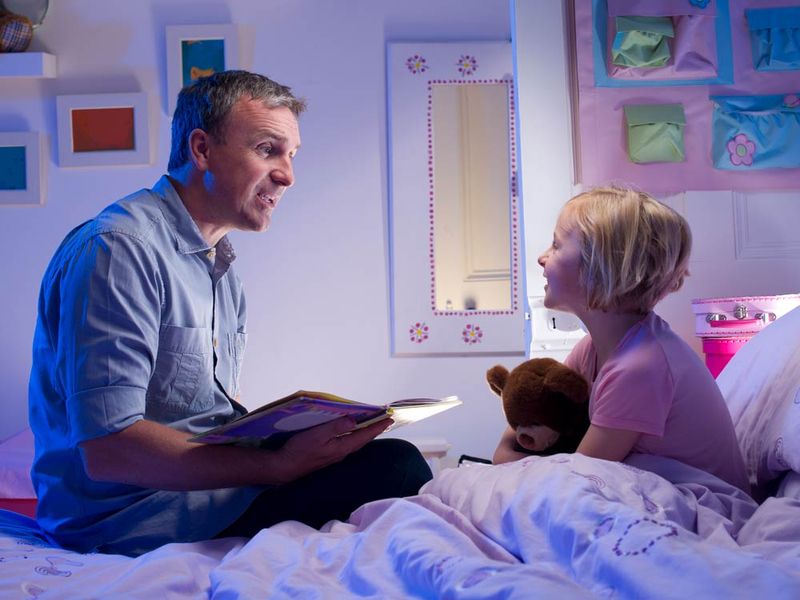
Bedtime can feel like running a marathon in slippers. Some nights, I’d rather watch paint dry than fight with my kid about brushing teeth. But I stuck with it—same book, same blanket, same goodnight song. It became a signal that no matter what exploded during the day, this moment was safe.
Kids crave that sense of closure. Honestly? So do parents. When bedtime is sacred, you all sleep better—body and soul.
Even if the day was pure chaos, end it with something soft and predictable. You deserve the reset. So does your kid. Sleep is survival.
12. Co-Parent Like a Pro (Even If You Kind of Hate Them)

You might have to co-parent with someone you’d rather never see again. I get it. For a while, handoffs at the park felt like hostage exchanges. What worked? Treating it like a business deal—polite, short, no drama.
Put your kid first, even if you have to grit your teeth. Save the rants for your journal (or your therapist). Your child shouldn’t carry your baggage.
You might never be friends—and that’s fine. Set boundaries. Communicate about logistics, not feelings. Your kid will notice the effort, even if they never say so out loud.
13. Celebrate the Tiny Victories

Nobody throws a parade for single parents who get through the week in one piece. But you can. Every time you manage a meltdown, juggle bills, or get your kid to school on time—celebrate. I used to make a big deal out of little things, like surviving a grocery trip without tears.
Victory is whatever you say it is. Find a way to mark the wins, even if it’s just a silly dance or an extra scoop of ice cream.
Tiny victories add up. They remind you (and your kid) that you’re doing more than surviving—you’re actually living. Don’t wait for applause. Make your own noise.
14. Squeeze Joy Out of Boring Days

People talk about magic moments, but most days are just ordinary. You know what? There’s gold in the boring stuff. Last month, my kids and I got stuck inside for a rainy weekend. We made popcorn, jumped on the couch, and played the world’s longest game of Monopoly.
Joy doesn’t always look like a vacation or birthday party. At times it’s a ridiculous inside joke, a goofy dance, or sharing bad takeout food.
Let yourself be silly, even if the house is a mess. Chase the laughter where you find it. Ordinary days are where real memories grow.
15. Teach Your Kids to Handle Life (Not Just School)

School doesn’t teach you how to plunge a toilet or budget for groceries. I decided early to show my kids how to do the stuff that keeps a life running. The first time we fixed a faucet together, water went everywhere and we laughed like idiots.
Give your kids chores, real ones. Let them help with dinner, make their own appointments, or balance allowance money. Call it life skills. Call it survival.
You’re equipping them to function in the real world, not just ace math tests. Someday, they’ll thank you for knowing how to change a tire. Maybe.
16. Discipline With Consistency (Not Just Volume)

When stress piles up, it’s tempting to yell just to be heard. I’ve done it. The problem is, yelling sticks harder than the lesson. I learned to stay calm, set clear rules, and follow through even when I was exhausted.
Consistency is the magic. Make the rules simple. Stick to them. Kids need to know the boundaries, not just the consequences.
Discipline isn’t about power; it’s about safety and respect. When you’re steady, your kid feels safer—even when they’re mad at you. That’s a win.
17. Don’t Make Your Kid Your Therapist

I caught myself once, venting to my son about his dad. Halfway through, I realized his eyes had gone wide. Kids are not built to carry adult grief. You can be honest about your feelings, but don’t dump the whole suitcase on them.
Lean on friends, family, or professionals. Kids should feel safe to be kids—not your therapist or sounding board.
Protect them from the heaviness you wish you could give back. If you need help, ask for it somewhere safe. Your child deserves a childhood, not your burdens.
18. Mind Your Mood (Because They’re Watching)

Nobody tells you how much your mood sets the weather inside your house. I could feel my daughter’s eyes on me when I sighed or snapped. I started naming my feelings out loud—“I’m tired, but I’ll be okay.” She followed suit, sharing hers.
Your kid doesn’t need you to be happy all the time. They need to know feelings are normal and that hard days pass. Let them see you ride out your storms.
What they’ll remember isn’t the darkness. It’s that you kept showing up, even when you didn’t have sunshine to spare. That’s the lesson that sticks.

